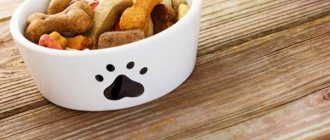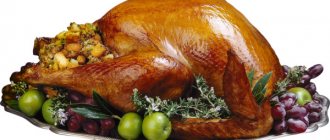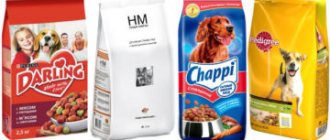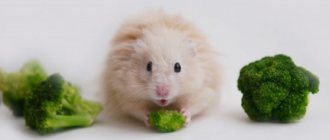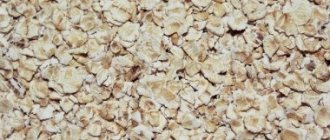Is it possible to give milk to a dog as an adult?
We all know that puppies from the first day of their life eat their mother's milk or food from their owners. However, over time, the concentration of lactose, a special enzyme responsible for the high-quality processing of lactose (a kind of natural sugar) found in milk in the stomach, becomes less in dogs. As a result, the product is less absorbed and can cause various abnormalities in the body’s functioning, ranging from banal diarrhea to indigestion and individual intolerance with allergic reactions.
On the other hand, if an animal consumes this product all its life, then the enzyme content does not decrease, and it is actively produced by the body. Thus, if you do not stop taking this product throughout your life, it turns out that you can give your dog milk even in adulthood and old age. However, even here there may be exceptions.
Feeding a dog after giving birth by week of lactation
First week after birth
During the first three days after birth, your dog may have no appetite. Despite this, you need to offer food every 6-8 hours and make sure that at least a little is eaten. The best way to feed a dog after giving birth depends on the pet’s preferences, usually milk porridge or meat puree with vegetables.
As appetite is restored, the usual daily intake of food is increased by half and divided into 5-6 meals. The dog should be fed mainly liquid food: porridge with water or milk, sour milk, kefir or yogurt, provided that lactose is well tolerated. Vitamin and mineral supplements are introduced and given until the end of lactation. In some cases, natural restoratives are indicated, for example, royal jelly.
In the first 5-7 days after giving birth to a dog, it is better to replace meat with more easily digestible types of protein - low-fat sea fish, cottage cheese. Also, fresh vegetables and fruits are not given in the first week. It is recommended to introduce boiled meat products only from day 4-5; it should be lean meat (chicken, turkey, rabbit, beef) or offal (heart, liver, stomach). Everything that the mother eats is also given to the babies, so it is important to ensure that the puppies do not have a disorder; it is easy to notice by their dirty “butts” and tails.
2nd and 3rd week of lactation
The first week flew by unnoticed, what should you feed your dog after giving birth? Starting from the second week, the diet is made more varied. They introduce vegetables (cauliflower, pumpkin, zucchini, carrots, beets), and try giving fruits. If a dog is feeding 3-4 puppies, the amount of food is doubled. When feeding 8 or more babies, food is given at least three times more than usual. There should be 4-5 feedings a day.
4-6 weeks of feeding
Starting from the 4th week, the puppies begin to be fed and the amount of milk decreases. The amount of food the mother eats should also be reduced, and she should also be switched to three meals a day. Gradually reduce the amount of liquid.
When the last puppy is taken away, the mother is given a fasting day, kept on an almost starvation diet for 24 hours, water is limited and only 1/4 of the portion is offered. The next day, a third of the usual diet, then half, and so on for 5 days are transferred to normal feeding.
What milk is best to give to your pet?
In practice there are two options:
- homemade fresh milk from a cow;
- store bought.
And even here, disputes among dog lovers, both amateurs and, by the way, professionals, do not stop. And these are the controversial aspects that appear.
- A homemade drink contains much more useful microelements, amino acids, calcium, vitamins, and not even by several times, but by an order of magnitude. And this is a serious argument in favor of the first option. However, on the other hand, this composition contains a lot of fat. And fat, whether of animal origin, as in our case, or of vegetable origin, is very dangerous for the animal. And if you ask a veterinarian whether it is possible to give your dog fresh milk, they will answer you unequivocally in the negative, including because of the high percentage of fat.
- Unsterilized milk carries a greater risk of contracting certain diseases of animals and humans. In this regard, of course, the store looks much more attractive. However, knowing our manufacturers, as well as the conditions under which this drink is bottled and packaged, you begin to seriously doubt such statements. It’s an even bigger plus if you know the homemade milk supplier and you are confident in him.
Can the product cause harm?
The benefits of kefir for dogs and puppies are undeniable. However, the use of such fermented milk must be approached with caution. Excessive use of kefir can cause gastrointestinal upset in your pet. It must be remembered that fresh product can cause loose stools, and standing in the refrigerator for several days contributes to constipation. This should be taken into account, first of all, by owners of older dogs who, due to their advanced age, have digestive problems.
The product can also cause an allergic reaction, which is expressed in excessive tearing, skin irritation, sneezing or even coughing. In this case, you should stop serving kefir and replace it with low-fat cottage cheese.
Select by “manufacturer”
Thus, the final decision, whatever one may say, in choosing between store-bought and homemade milk (if any) remains solely with the dog owner.
If preference is given to your own, fresh drink, then at the next stage you need to decide on the “manufacturer”.
- Cow's milk
is the most common option and is very popular, primarily due to its availability. Indeed, it is easier and cheaper to buy milk from a cow. A distinctive feature of this particular cow’s “drink” is its high, in comparison with others, content of that same lactose. For this reason, it is fundamentally important to monitor your pet’s well-being as closely as possible at first - diarrhea, on the contrary, constipation, fever, depression, apathy - all this should alert you and make you give up the idea that in your particular case you can give your dog milk from a bottle. cows. - Goat's milk
is by far the most promising option, if only for the simple reason that it contains a minimal amount of lactose. At the same time, other useful and vital substances are contained in sufficient quantities. The drink is easily digestible and easy and pleasant to drink. However, goat milk is a rather expensive product and relatively rare even for small settlements, not to mention cities and megalopolises. But if you really want to, you can find it, as an option, at food markets. - Mare's milk
is only relevant for dogs that have been accustomed to it since childhood. There is not much protein, and lactose is off the charts. And if it comes to the notorious kumys, then ethanol will also be added. In general, you can turn a dog into an alcoholic, and quite easily.
How to properly give dairy products to a dog
It is important to calculate the dosage correctly. For medium-sized dogs, the following norm will be optimal:
- Puppies up to 2 months - about 70-100 ml per day.
- From 2 to 3 months - from 100 to 200 ml.
- From 3 to 4 - from 200 to 300 ml.
After this, it is advisable to switch to kefir - it can be given to dogs 2-4 times a week, from 50 to 300 ml per dose, depending on the size of the pet.
Now the reader knows not only whether puppies can be given milk, but also about the beneficial and harmful properties of various dairy products. This means it definitely won’t harm your pet.
What kind of milk should I feed puppies?
With adult dogs everything is more or less clear. If the dog eats food with milk with pleasure, and there are no health problems, then everything is fine. If he refuses this product or somehow experiences an allergic reaction, well, God bless him. In fact, milk can be relatively easily replaced with the help of elite types of dry food with a high content of vitamins, potassium and calcium, as well as various dietary supplements, of which there are a great many in veterinary pharmacies.
With puppies who, for some reason, find themselves without mother's milk, everything is much more complicated. Giving them a classic product, both raw and sterilized, is unacceptable. The optimal solution in this situation seems to be the use of so-called dry infant formula. Yes, exactly those milk formulas that people use to feed their children. These formulations are perfect for dogs of absolutely any breed.
Most importantly, it is impossible, simply unacceptable, to tear puppies away from their mother’s nipple ahead of time. While the bitch is feeding her litter, the puppies should be with her, and only that way. No dry formula, no milk, can replace mother's drink. If only for the simple reason that antibodies are transmitted along with it, providing immune protection for the puppy.
The benefits of fermented milk products
Can a dog have kefir, cottage cheese and other fermented milk products? The answer is obvious. Many veterinarians are inclined to believe that such food has a positive effect on the animal’s body:
- First of all, fermented milk is a high-quality source of protein and calcium, which are necessary for the full functioning of the cardiovascular, skeletal and nervous systems.
- Such products are absorbed by the body much better than milk. In addition, whole milk is not recommended for adult dogs.
- Food of fermented milk origin contains lacto- and bifidobacteria, which have a beneficial effect on the functioning of the animal’s gastrointestinal tract.
- Kefir, yogurt and fermented baked milk normalize intestinal motor function, which prevents the formation of gases.
- Due to the presence of vitamins B, E, D, A, calcium salts, magnesium, phosphorus, as well as essential amino acids in fermented milk products, metabolism in the body improves.
Is there an alternative
As already noted, if the animal does not receive milk, it can be replaced with premium feed or dietary supplements. However, this is usually very expensive. You can try other alternatives before purchasing them. We are talking about fermented milk products, in particular kefir or soft cheeses. They also contain a large amount of useful substances, including calcium, as well as amino acids and vitamins.
Feeding with prepared food
Feeding dogs accustomed to dry food during lactation should be changed taking into account certain rules:
- immediately after birth, dry food must be soaked in water or replaced with liquid food, since a large amount of water is needed to digest this type of food;
- in addition to feed, the animal’s menu should include fermented milk products and vitamin and mineral supplements;
- The protein ratio in food for lactating bitches should be 24-28%.
Expensive, high-quality food, as a rule, already contains the required amount of vitamins and minerals. If the dog eats cheaper food, then adding food additives to its diet is necessary.
What to do if your dog feels ill: possible causes
After feeding cottage cheese, the dog may feel unwell. The illness may manifest itself in the form of an allergic reaction, food poisoning or overeating. Having discovered signs of deterioration in health, the owner needs to take appropriate measures to alleviate the pet’s condition.
Allergy
If signs of an allergy are detected, the owner needs to contact a veterinarian. The doctor will prescribe a comprehensive treatment for the dog and also give detailed recommendations. Treatment of the disease consists of:
- a therapeutic diet, which indicates which foods will be allowed;
- if necessary, take antibiotics and antifungal drugs;
- for severe itching, take antihistamines.
Food poisoning
When food poisoning occurs, a dog experiences diarrhea, weakness, lethargy, or, on the contrary, an atypical overexcited state, and it may also refuse to feed.
In this case, the owner needs to induce vomiting by giving the dog a weak solution of potassium permanganate. After these manipulations, activated carbon should be given.
If an adverse reaction occurs, you should immediately contact your veterinarian
Preparing cottage cheese for use
Having dealt with the question of whether it is possible to give cottage cheese to a dog, you need to decide whether to offer a store-bought or home-prepared product to your four-legged friend and in what form.
There is no consensus. It is impossible to know the usefulness of a store-bought product, but E. coli can multiply in it. It is especially dangerous to buy cottage cheese from hand without having information about the presence of manufacturer quality certificates.
A farm product also cannot always boast of quality, because the cleanliness of the person who makes it, the health of the cow, what kind of food it eats and what kind of milk it produces are of decisive importance. It should be borne in mind that the percentage of poisoning from a homemade dish is much higher than from a store-bought one.
Important! Dogs are prohibited from giving products that contain cottage cheese, for example, curd cheese and cottage cheese. The purchased product must not contain raisins or other additives. But yogurt is good for dogs.
For a four-legged pet, you should choose a bold variety of this delicacy. It is well absorbed by the body without causing negative reactions.
Cottage cheese included in a dog’s diet should not be subjected to heat treatment, since in this form the product is not absorbed by the body.
When purchasing a product, you need to pay attention to the composition and expiration date.
Pros and cons of cottage cheese for dogs
Cottage cheese is good for human health - this is what owners are guided by when adding it to their pets’ diet. The animal really needs it, firstly, as a source of calcium for the proper development of the skeletal system, and secondly, protein, which is of decisive importance for the health of the pet. The dog will be active and cheerful if its diet contains a sufficient amount of protein.
It is also useful due to the content it contains:
- Amino acids that normalize the functioning of the digestive organs and nervous system, and also activate mental activity.
- Iron, responsible for ensuring the required level of hemoglobin.
- Vitamin A, beneficial for the visual system. In addition, vitamin A helps form teeth and bones, and also stimulates the immune system.
- Vitamin D, which improves the functioning of the musculoskeletal system in puppies.
It is precisely due to the content of vitamin D that the question of whether puppies can have cottage cheese, which interests many owners, can be answered positively, but it should be given to representatives of small breeds, for example, if it is a Yorkie, Dachshund or Maltese.
Important! Dry dog food does not go well with cottage cheese, so you need to select such a product taking into account the individual characteristics of the dog’s body.
Despite the benefits of the product, it has its disadvantages, which should be taken into account when supplementing the diet of your four-legged pet with cottage cheese. After consuming it, the animal may become ill. However, in this case, most often the culprit is an allergic reaction.
And yet the product can cause harm:
- If the owner chooses fatty types of cottage cheese for feeding, this will become a real test for the stomach of his four-legged friend, in addition, the liver will not be able to cope with such a load.
- When a dog receives such a product too often. An excess of calcium in the body can have a negative impact on the growth and structure of bones.
- If it is eaten by a large breed puppy, for example, a Labrador, Husky, German dog, any other shepherd, etc., such individuals already grow too quickly, so an additional source of calcium may contribute to the development of the disease.
- A four-legged pet suffers from obesity or pancreatitis - in this case, a special therapeutic diet is required, which is important to strictly follow.
- The dog suffers from an allergic reaction to the product.
Important! If an animal is allergic to beef, it may also be allergic to cottage cheese.
Cottage cheese must be included in the diet of small breeds
Features of feeding cottage cheese to puppies and pregnant dogs
Cottage cheese is one of the first products introduced into complementary foods for pets. But here it is very important to understand how to give cottage cheese to a puppy. At the age of 3-4 months, it replaces one full feeding of the puppy, and the portion can be made in half with meat. It is best to choose a high-calorie product - up to 11% fat.
For puppies, you need to choose low-fat cottage cheese. The consistency should resemble sour cream, so you can mash it with a spoon and mix with kefir. A puppy up to one year old can be offered calcined cottage cheese, but at the same time observe the measure, since an excess of calcium leads to hypercalcemia.
Pregnant females or during the postpartum period are offered products with a low percentage of liquid, but not less than 2-3%.
Cottage cheese is a healthy product for puppies


